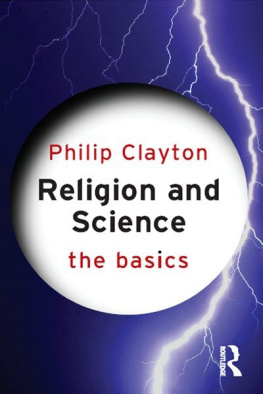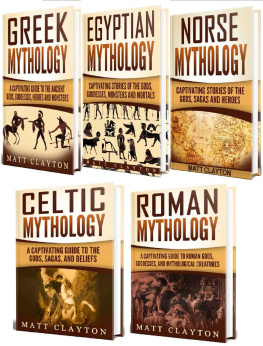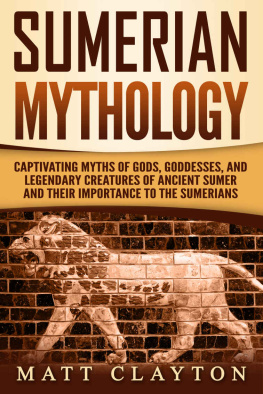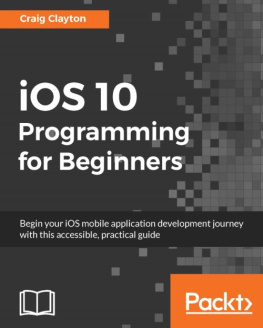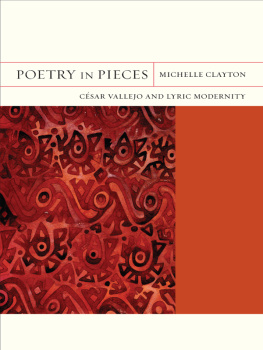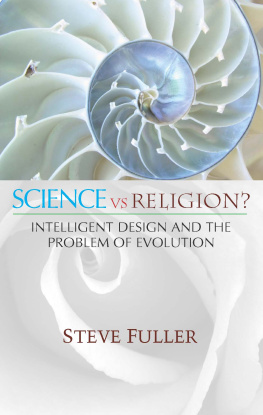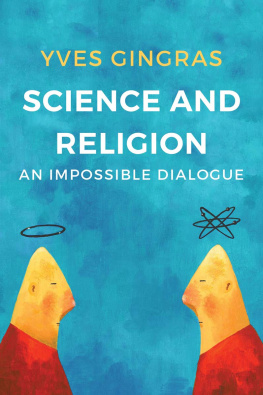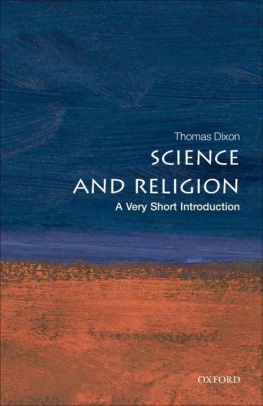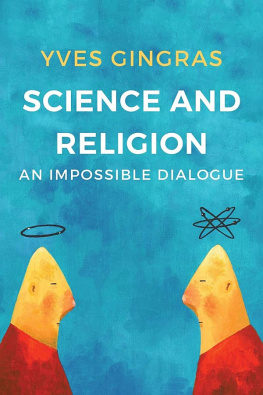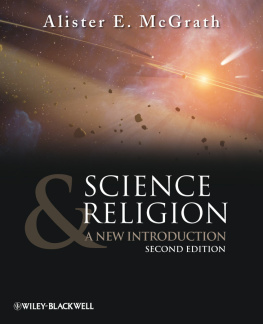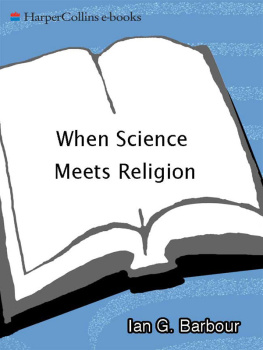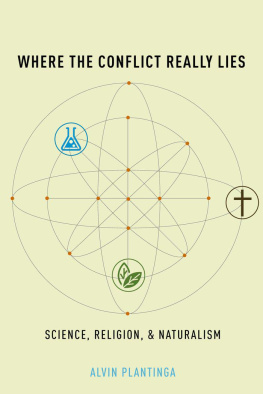RELIGION AND SCIENCE
THE BASICS
Religion and science are arguably the two most powerful social forces in the world today; however, they are widely perceived to be in irreconcilable conflict. This unique book provides an introduction to the crucial ongoing questions and arguments in this controversial field.
Examining critical arguments through thematic debates, the author, renowned expert Philip Clayton, presents a balanced response to essential issues including:
science or religion, or science and religion?
Intelligent Design vs. the New Atheists
the role of scientific and religious ethics designer drugs, AI, and stem cell research
the future of science and the future of religion.
Viewpoints from a range of world religions and different scientific disciplines are explored, making this book essential reading for all those wishing to formulate their own questions and opinions about this much debated subject.
Philip Clayton is Ingraham Professor and Dean of Claremont School of Theology, and Provost of Claremont Lincoln University USA. Author or editor of some twenty books, he is widely recognized internationally as a leading figure in the field of religion and science.
The Basics
ACTING
BELLA MERLIN | LOGIC
JC BEALL |
ANTHROPOLOGY
PETER METCALF | MANAGEMENT
MORGEN WITZEL |
ARCHAEOLOGY (SECOND EDITION)
CLIVE GAMBLE | MARKETING (SECOND EDITION)
KARL MOORE AND NIKETH PAREEK |
ART HISTORY
GRANT POOKE AND DIANA NEWALL | PHILOSOPHY (FOURTH EDITION)
NIGEL WARBURTON |
THE BIBLE
JOHN BARTON | PHYSICAL GEOGRAPHY
JOSEPH HOLDEN |
BUDDHISM
CATHY CANTWELL | POETRY (SECOND EDITION)
JEFFREY WAINWRIGHT |
CRIMINAL LAW
JONATHAN HERRING | POLITICS (FOURTH EDITION)
STEPHEN TANSEY AND NIGEL JACKSON |
CRIMINOLOGY (SECOND EDITION)
SANDRA WALKLATE | THE QUR'AN
MASSIMO CAMPANINI |
ECONOMICS (SECOND EDITION)
TONY CLEAVER | RELIGION (SECOND EDITION)
MALORY NYE |
EDUCATION
KAY WOOD | RELIGION AND SCIENCE
PHILIP CLAYTON |
EUROPEAN UNION (SECOND EDITION)
ALEX WARLEIGH-LACK | RESEARCH METHODS
NICHOLAS WALLIMAN |
EVOLUTION
SHERRIE LYONS | ROMAN CATHOLICISM
MICHAEL WALSH |
FILM STUDIES
AMY VILLAREJO | SEMIOTICS (SECOND EDITION)
DANIEL CHANDLER |
FINANCE (SECOND EDITION)
ERIK BANKS | SHAKESPEARE (SECOND EDITION)
SEAN MCEVOY |
HUMAN GENETICS
RICKI LEWIS | SOCIOLOGY
KEN PLUMMER |
INTERNATIONAL RELATIONS
PETER SUTCH AND JUANITA ELIAS | TELEVISION STUDIES
TOBY MILLER |
ISLAM (SECOND EDITION)
COLIN TURNER | TERRORISM
JAMES LUTZ AND BRENDA LUTZ |
JUDAISM
JACOB NEUSNER | THEATRE STUDIES
ROBERT LEACH |
LANGUAGE (SECOND EDITION)
R.L. TRASK | WORLD HISTORY
PETER N. STEARNS |
LITERARY THEORY (SECOND EDITION)
HANS BERTENS | WORLD MUSIC
RICHARD NIDEL |
RELIGION AND SCIENCE
THE BASICS
Philip Clayton

First published 2012
by Routledge
2 Park Square, Milton Park, Abingdon, Oxon OX14 4RN
Simultaneously published in the USA and Canada
by Routledge
711 Third Avenue, New York, NY 10017
Routledge is an imprint of the Taylor & Francis Croup, an informa business
2012 Philip Clayton
The right of Philip Clayton to be identified as author of this work has been
asserted by him in accordance with sections 77 and 78 of the Copyright,
Designs and Patents Act 1988.
All rights reserved. No part of this book may be reprinted or reproduced or
utilized in any form or by any electronic, mechanical, or other means, now
known or hereafter invented, including photocopying and recording, or in any
information storage or retrieval system, without permission in writing from
the publishers.
Trademark notice: Product or corporate names may be trademarks or
registered trademarks, and are used only for identification and explanation
without intent to infringe.
British Library Cataloguing in Publication Data
A catalogue record for this book is available from the British Library
Library of Congress Cataloging in Publication Data
Clayton, Philip, 1956
Religion and science: the basics/Philip Clayton.
p. cm. (The basics)
Includes bibliographical references.
1. Religion and science. I. Title.
BL240.3.C54 2012
201.65dc22
2011009500
ISBN: 978-0-415-59855-2 (hbk)
ISBN: 978-0-415-59856-9 (pbk)
ISBN: 978-0-203-80444-5 (ebk)
Typeset in Bembo
by Wearset Ltd, Boldon, Tyne and Wear
CONTENTS
PREFACE
Like many philosophical questions, the questions that arise at the boundaries between the sciences and the religions will likely be with us for as long as there are humans to ask questions. Unlike some philosophical disputes, however, this debate is of immense practical importance. Science and religion may just be the two most powerful social forces in the world today (money comes in a close third). AH of us have a stake in whether they engage in a war to the death or become partners for the good of society and the planet.
Many different interests might lead one to explore the possible relationships between religion and science. They fall roughly into three groups:
1 Religious:
You are a religious person who wants to show that your religious beliefs are consistent with today's science.
You are a religious person who has concluded that your beliefs clash with science, and you want to be able to convince people that they should side with you and against science.
You are a religious person who concludes that your beliefs clash with science, yet you don't want to make affirmations that undercut science. So you are trying to determine what (if anything) you can salvage from your former belief system.
2 Science:
You are a scientist who believes that religion is deeply destructive to the quest for scientific knowledge, and you want to learn enough about it so that you can demolish it more effectively.
You are a scientifically inclined person who wants to find out whether religion is an opponent to science, a friend, or neutral to the scientific quest.
You are a scientist and also deeply religious, and you are encouraged by the many compatibilities that you find between scientific knowledge and your own religious faith.
3 Other:
You are neither scientist nor religious, but you believe that both are important social forces in today's world. You want to study the field to know whether or not there is an intrinsic conflict between these two powerful forces in the contemporary world, in order to make up your mind about what you should believe and do.

